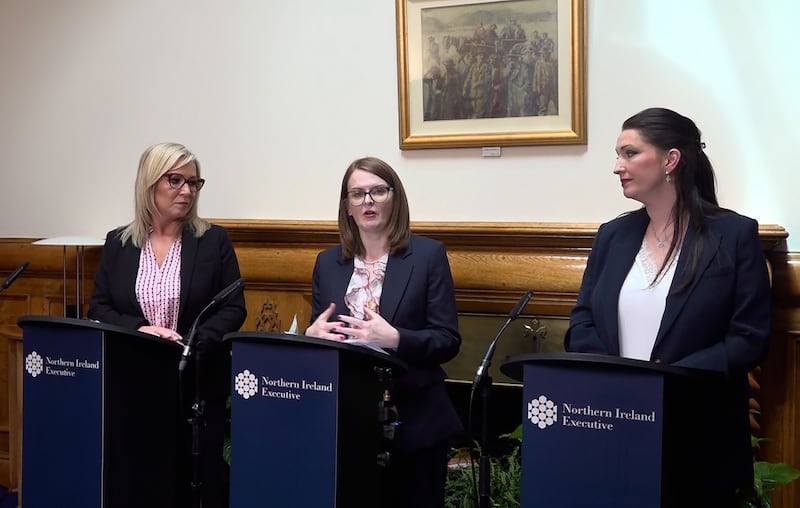“Northern Ireland is divided in many different ways. It has been described as a 25/25/50 society with 25% of households living in hardship, 25% in comfort and 50% with a good standard of living.”
This is a quote from the 2007 Independent Water Review Panel report, chaired by Queen’s University Belfast professor Paddy Hillyard.
For clarity, he meant the 50% were better off than the comfortable.
The report was commissioned by Sinn Féin minister Conor Murphy to examine alternatives to water charging. Neither he nor the DUP liked its recommendation to itemise water on domestic rates, so it was never heard of again.
Must the existence of the fortunate 50% also be permanently ignored? Debate on Stormont’s finances is dominated by the needs of those in hardship and the complaints of the comfortable that they can afford nothing more. The half of the population who clearly can pay more are allowed to sit serenely above the fray.
Of course, it is never popular to suggest anyone pays more tax. But politicians and political groups, on the left in particular, might be expected to occasionally mention Northern Ireland’s enormous potential for a little light income redistribution.
The average household here pays £1,000 less annually in rates than households in Wales and regions of England with lower disposable incomes. It is our better-off households who benefit most. Stormont’s populism is so spineless this can barely be acknowledged, let alone exploited.

In her budget last week, Sinn Féin finance minister Caoimhe Archibald omitted any revenue-raising measures. Regional rates bills will fall in real terms, rather than rising by 15% as demanded by the Treasury.
The minister still deserves two cheers: any budget is better than none, which was a distinct possibility. Archibald has conceded there will be no extra cash from London for at least two years and public sector reform should be Stormont’s long-term focus.
Revenue-raising is no minor challenge: perhaps it is unfortunate there has been so much emphasis on water charges, an anathema to Sinn Féin. Rates, the only serious devolved tax, are a blunt instrument based on wealth, although Stormont has almost limitless scope to change how rates are assessed. Sinn Féin supports devolution of income tax but mainly as a republican ideological exercise in “repatriating powers from Britain”. In any case, it would take years to arrange.
Means-testing most Stormont giveaways is impractical or unreasonable. Apart from water, the costliest giveaway is subsidised university tuition. People cannot be lumbered with life-long debt based on what their parents earned when they were 18.

A more direct approach to the better-off should be on the agenda. Minimal fees could be introduced for some public services, as is common in the Republic. There is more precedent for this in Northern Ireland than is always realised. Most grammars can already charge compulsory annual fees of £140 per pupil, for example.
The juiciest target is means-testing of universal benefits. One or two modest measures in this area could solve all Stormont’s financial problems.
Any measures would have to be negotiated with the Treasury due to the complicated way welfare is devolved. However, the executive has done this before. In 2015, the DUP and Sinn Féin agreed a welfare reform mitigation package that uses Stormont’s money to pay higher benefits, targeted at the struggling 25%. This was a £45m cost in last week’s budget. There is no reason why benefits for the fortunate 50% could not be targeted to make a contribution to the budget.

Self-interest alone should motivate the better-off to help Northern Ireland’s public sector, as it provides so many of them with their well-paid jobs and underpins so much of their quality of life. They are deluding themselves if they think they can buy their way out of collapsing services.
A finance minister could say to everyone like me: ‘I’ll take £50 off your child benefit, give it to the health service, then you won’t need your insurance’
My own household receives £230 per month in child benefit. I have been alarmed enough by the state of the health service to take out a £50 per month family health insurance policy, although I know this will only work once before we are ‘sacked’ for the audacity of claiming. I realise private medicine is simply cannibalising the NHS but that is a problem beyond my control.
A finance minister could say to me and everyone like me: “I’ll take £50 off your child benefit, give it to the health service, then you won’t need your insurance.”
Why does even suggesting this make me sound like I have two heads?
It is meant to be what devolution is all about.


